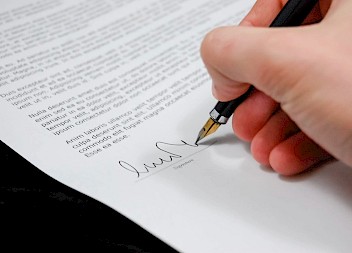What is a Litigation Friend?
The term ‘Litigation Friend’ is a legal term for someone who assists another person in bringing a claim.
Who can be a Litigation Friend?
A litigation friend must be someone who can act fairly and competently on behalf of the child or Protected Party.
In most cases involving Claimants under the age of 18, the litigation friend will be one of the child’s parents. For Protected Parties, the litigation friend might be a parent sibling, husband/ wife, child or close friend. It may be more appropriate to appoint a guardian, social worker or professional carer to act, in some cases.
If there is no-one suitable and/or willing to act on behalf of the Claimant, the Court may appoint the Official Solicitor to act on behalf of the Claimant instead. The Official Solicitor is a special branch of the Court set up for that purpose.
How to become a Litigation Friend?
If you are able to act as the litigation friend, you will need to sign a ‘Certificate of Suitability’ before you become involved in Court proceedings. A copy of this will be provided and filed by us at Court on your behalf.
How does it affect the claim?
Generally, the claim will proceed in the same way as it would if the Claimant was able to bring proceedings in his/her own right.
One difference is that, where a Claimant requires a Litigation Friend, any settlement agreed on behalf of the Claimant must be approved by the Court. This provides a measure of extra protection to the Claimant.
The role of a Litigation Friend
A litigation friend assists the Claimant by dealing with the legal case. If the person is appointed as a litigation friend, their name will appear on the Court papers and they will need to sign any Court documents on the Claimant’s behalf. On a practical level, when instructions from the litigation friend (advice about the decisions to be made and the options will always be provided). The litigation friend will attend meetings on behalf of the Claimant and may have to take decisions on the Claimant’s behalf about a wide range of issues connected to the claim, including settlement.
A litigation friend must always act in the best interests of the Claimant at all times. He/she must not make decisions in their own interests, but consider what is best for the Claimant when giving instructions.
When is a Litigation Friend necessary?
There are two situations where a Litigation Friend is necessary:
- A litigation friend is needed where the Claimant I in a legal case is a child under the age of 18. A child is not able to give formal instructions or take legal decisions to a claim until they are 18 years old.
- A litigation friend is also necessary where the Claimant is incapable of managing his/her own affairs. Most commonly, this will be because he/she does not have the capacity to make decisions due to a mental illness or injury. The Claimant is also known as a ‘Protected Party’ in those circumstances.
How are you released from this role?
If you represent a child, your appointment as litigation friend will automatically come to an end as soon as they reach the age of 18 or, if sooner, at the end of the case.
If you represent a Protected Party, your appointment will continue until the end of the claim or if the Claimant regains mental capacity. This may occur where a Claimant recovers sufficiently from their injuries to be able to manage their legal and financial affairs once again.
You may also voluntarily step down if you no longer wish to act.











